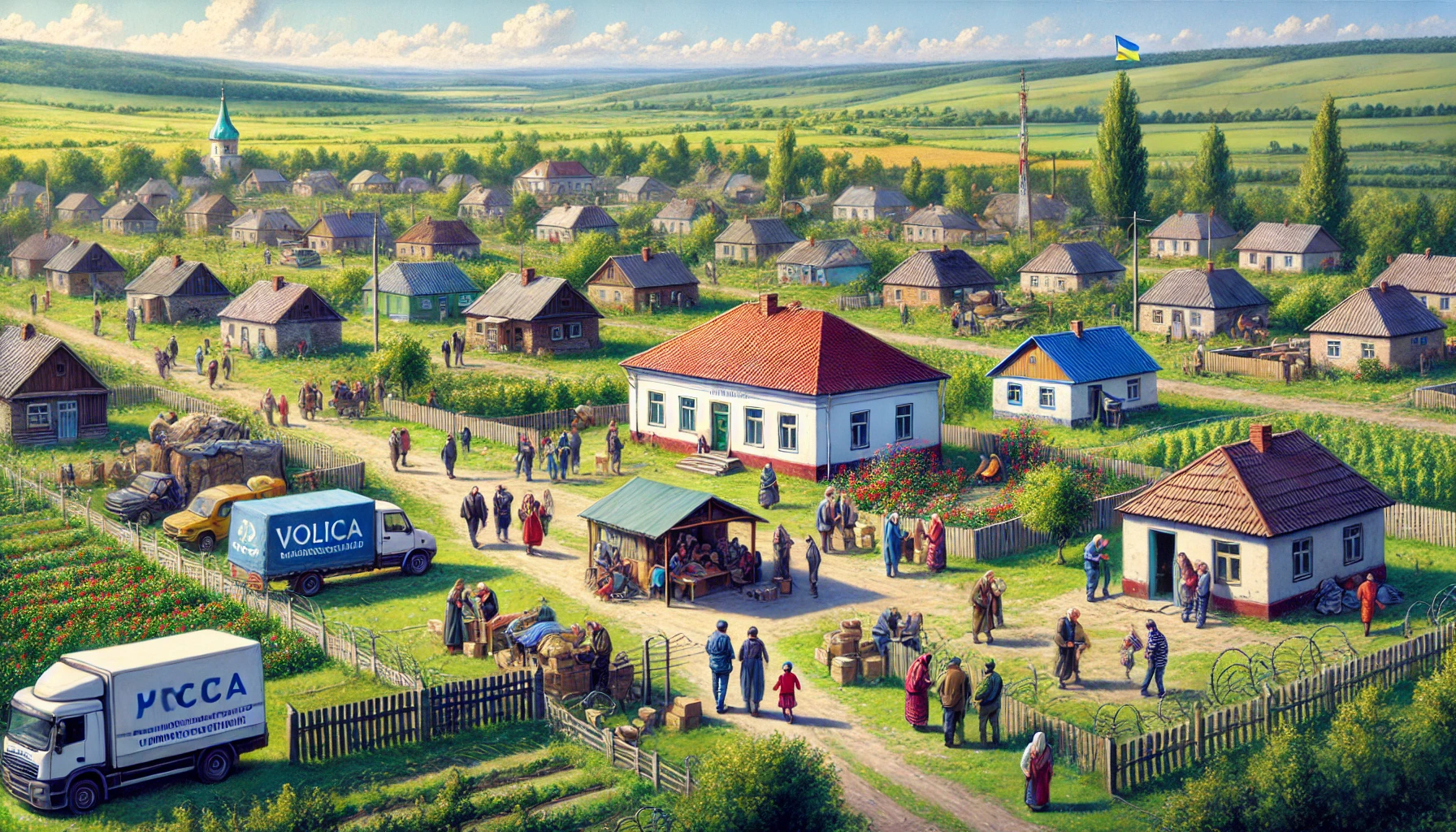From Survival to Stability: Integrating Ukraine’s Displaced Population in Moldova
The World Bank report highlights the need for long-term solutions to integrate displaced Ukrainians in Moldova, focusing on improving access to essential services, socio-economic inclusion, and building stronger social cohesion between displaced persons and host communities. Local authorities play a critical role in this effort, but face significant challenges due to limited resources.

A study by World Bank delves into the challenges that Ukrainians displaced by Russia’s invasion continue to face in Moldova. With the ongoing conflict showing no signs of resolution, the report highlights the necessity for sustained and long-term development interventions to support the socio-economic integration of these displaced individuals into Moldovan society. The likelihood of a swift return to Ukraine remains uncertain, underscoring the importance of establishing durable solutions that will allow them to build stable lives in their new environment.
The Role of Moldovan Authorities and the Shift Towards Long-Term Solutions
Since the invasion, the Government of Moldova, along with Local Public Authorities (LPAs), has been at the forefront of addressing the immediate needs of these displaced populations. However, as the displacement situation becomes more prolonged, the focus is shifting towards finding long-term solutions that will enable these individuals to thrive. The report aims to provide an in-depth understanding of the experiences and needs of the displaced population, host communities, and LPAs. It also seeks to identify key policy interventions that could support the establishment of these durable solutions, ultimately ensuring that displaced persons are not just surviving but are also integrating effectively into Moldovan society.
Demographic Shifts and the Introduction of Temporary Protection
Currently, Moldova is home to approximately 120,000 displaced persons from Ukraine, with a significant majority being women and children. The demographic makeup of this population has evolved over time, with an increasing number of single adults and individuals traveling alone. To address the needs of these displaced persons, the Moldovan government introduced a Temporary Protection (TP) regime, which provides access to essential services such as work, healthcare, and education. Despite the potential benefits, registration for TP has been slow, with only about 44,784 people having registered by April 2024. This slow uptake can be attributed to various factors, including a lack of information, language barriers, and uncertainty about the long-term benefits of the TP status.
Challenges in Education, Employment, and Healthcare Access
While there has been some progress in improving the living conditions of displaced persons, significant challenges remain. Many displaced individuals have transitioned from public to private accommodations, and there has been an increase in employment among the displaced population. However, a considerable number of displaced children are still not enrolled in Moldovan schools, and many adults remain outside the labor force. Access to specialized healthcare services continues to be a major issue, particularly in rural areas where such services are either unavailable or unaffordable. These challenges are compounded by the fact that many displaced persons face barriers in accessing services due to a lack of information, difficulties in understanding the local language, and the overwhelming demands of childcare and other household responsibilities.
The Critical Role of Local Public Authorities
LPAs play a crucial role in supporting displaced persons, particularly in rural areas where services are more limited. However, these local authorities face their own set of challenges, primarily due to limited financial and human resources. Many LPAs still rely on outdated paper registries to track displaced persons, and only a small percentage of them use national electronic databases. The report also highlights the growing tension within host communities, driven by perceptions of unequal distribution of resources. While most communities have been welcoming, there is evidence of increasing hostility towards displaced persons, which could hinder efforts to build social cohesion.
Recommendations for Moving Towards Durable Solutions
In response to these challenges, the World Bank report offers several recommendations for moving towards more durable solutions. These include improving access to quality housing, enhancing educational opportunities for displaced children, increasing access to care services and labor market information to boost women’s participation in the workforce, and providing displaced persons with more comprehensive information about their rights and the services available to them. The report also emphasizes the need for measures to prevent discrimination and to build stronger social cohesion between displaced persons and host communities. Training for local authorities and service providers is also recommended to ensure they are better equipped to meet the unique needs of displaced persons.
Ultimately, the World Bank's report underscores the importance of addressing the evolving needs of displaced Ukrainians in Moldova through targeted, long-term interventions. These interventions should not only provide immediate relief but also focus on facilitating the successful integration of displaced persons into Moldovan society. As the situation continues to evolve, it is crucial that both national and local authorities, along with international organizations, work together to create an environment where displaced persons can rebuild their lives with dignity and security. By doing so, Moldova can set a strong example of how to manage protracted displacement crises in a way that benefits both the displaced and the host communities.
- FIRST PUBLISHED IN:
- Devdiscourse










